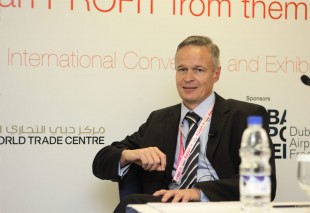

Middle East hotel recovery underway - Deloitte

Analysis by Deloitte, the business advisory firm, has found that RevPAR was down 10.4% in the Middle East during the first quarter of 2010, compared with the same period last year.
However, drops in RevPAR have slowed to single-digits over the past few months, down 8.3% in February and 4.1% in March.
Alex Kyriakidis, global managing partner of tourism, Hospitality & Leisure at Deloitte, commenting on the results from STR Global, said: “Being one of the last regions to be affected by the economic crises, the Middle East will be one of the last to return to growth and is currently US$41 behind the revPAR achieved in the pre-recessionary times of Q1 2008.
“With more demand for tourism, sound economic growth and investment in the tourism industry, hotel performance growth would be a rational by-product. The balance between supply and demand remains a factor for the region. Demand for hotel rooms has been showing a strong increase since October 2009, and is up 9.8% during the first quarter of 2010. This reflects a 24.5% jump in air traffic, across the region year-to-February as reported by the International Air Transport Association. However, the surplus of new room supply is putting continued downward pressure on hotel performance.”
Beirut
Building on the 62.1% revPAR increase achieved in 2009, Beirut continues to be the frontrunner in the region with revPAR up 25.6%, year-to-March 2010. Hotel performance growth is expected to continue, but at a more modest level.
Dubai
Drops in hotel performance in Dubai have decelerated considerably year-to-March, down only 0.8% to US$199. Driven by double-digit increases in occupancy, Dubai re-claimed the top spot in the Middle East with the highest occupancy and revPAR. The emirate also celebrated its second consecutive month of revPAR growth in March 2010, after 15 consecutive months of decline. However, with 8,560 rooms due to open in 2010 and 7,623 rooms to open in 2011, according to Lodging Econometrics (LE), the emirate may experience further adjustments in hotel performance.
Abu Dhabi
RevPAR in Abu Dhabi is down 50.3%, the steepest decline across the Middle East. At this point last year, hotel performance in the emirate was still growing and had not encountered the decreases that other cities were experiencing. With 2,201 new rooms set to open in Abu Dhabi in 2010 and an additional 8,760 to open in 2011, according to LE, we expect hotel performance to continue to contract against performance last year.
Rob O’Hanlon, Middle East partner of tourism, hospitality & leisure at Deloitte, said: “Hoteliers in the Middle East achieve the highest revPAR levels globally, and the hospitality industry is focusing on innovative strategies to attract new feeder markets to the region, to keep hotel performance healthy. For instance, Dubai has reintroduced its ‘Kids go Free’ campaign this summer offering two children under the age of 16 complimentary flights, hotel stays, tourist visas, accommodation and several other benefits when accompanied by two adults.
“Meanwhile, The Jordan Tourism Board is taking a long-term view by recognising the shift in world demographics. They opened an office in New Delhi last year, while also making the process to obtain a tourist visa more efficient and less time consuming for travellers from India. Steps like these will result in more tourists, with the World Tourism Organisation forecasting arrivals to grow between 5-9% in region, the strongest upside projections globally.”